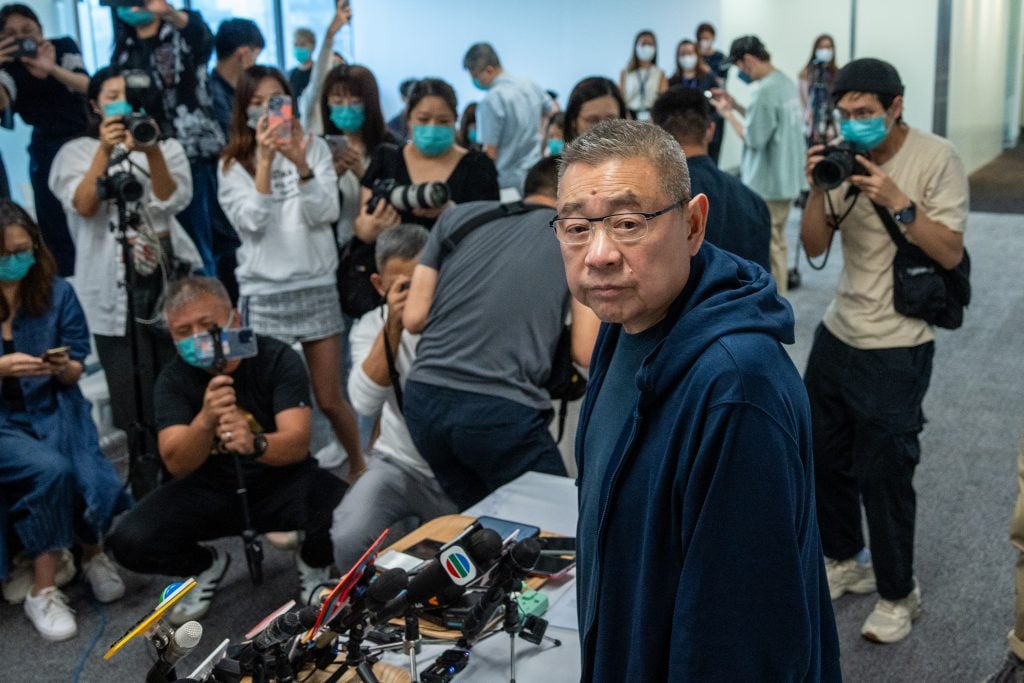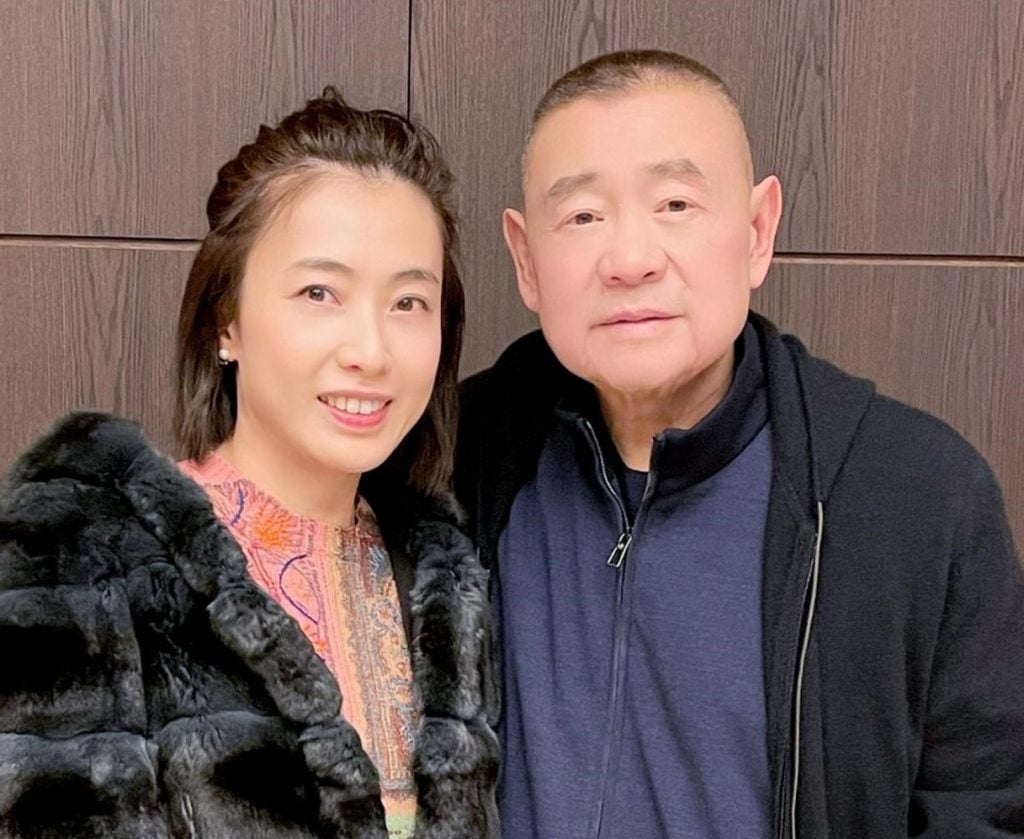Art World
Mega Collector Joseph Lau Shoots Down Rumors That His Wife Lost Him Billions in Bad Investments
Lau said his wife Kimbee Chan Hoi-wan actually "brought me HK$20 billion in return from investing in art."

Lau said his wife Kimbee Chan Hoi-wan actually "brought me HK$20 billion in return from investing in art."

Vivienne Chow

Speaking at an impromptu press conference held in Hong Kong on Friday, the fugitive property tycoon, stock market investor and mega collector Joseph Lau dismissed speculation about his health and financial troubles. Saying he came out to defend his wife, Kimbee Chan Hoi-wan, after rumors were published alleging that she had lost him more than HK$20 billion ($2.6 billion) in bad investments, prompting Lau to rewrite his will and disinherit her.
“I must clarify that Chan Hoi-wan has never made me lose any money. She has brought me HK$20 billion in return from investing in art,” Lau told the media. “If there had been any loss on any of my personal investment, it was a result of my own decision.”
Chan is CEO of Chinese Estates Holdings, a company founded by Lau, which was recently involved in a reported HK$20 billion loss in investment in the embattled property giant China Evergrande Group. It was rumored that Lau was forced to sell his blue-chip art collection in order to recover the loss from investing in Evergrande, currently the world’s most indebted developer.
But Lau countered this, saying he and his wife buy and sell art at the right time, citing the sale of a Sanyu painting around three years ago as an example. He said the painting was acquired for around HK$8 million ($1 million) and sold for more than HK$200 million ($26 million).
Lau did not specify which Sanyu painting it was but according to Artnet Price Database, Sanyu’s Quatre nus (Four nudes) (1950) sold for HK$258 million ($33 million, including fees) at Sotheby’s Hong Kong in 2020, the second most expensive Sanyu painting sold at auction and the only work that matches Lau’s description. The work previously sold for HK$16 million ($2 million) at a Christie’s Hong Kong sale in 2005.
Chinese Estates Holdings is one of the main backers of Evergrande and Lau was said to be a close friend of Evergrande’s founder Hui Ka Yan, once a major art collector in China and the second richest person in Asia. Yan’s wealth has since plunged by 98 percent.

Chan Hoi-wan and Joseph Lau. Photo: courtesy of Christie’s Asia Pacific.
Lau, Hong Kong’s eighth richest man with an estimated $13.1 billion fortune according to Forbes, said all the rumors circulating online, particularly those appearing on mainland Chinese websites, were untrue. He also stressed that he was healthy, despite undergoing a kidney transplant in 2016.
“A friend asked me recently, ‘Brother Jo, are you okay? People are whispering about your deteriorating health and that you are about to die,'” the 72-year-old said during the press conference. “Look at me. Do I look like I’m about to die? I’m still in good health.”
Lau did not identify who might be behind the rumors during the one-hour conference, but he hinted that it might be his former girlfriend Yvonne Lui Lai-kwan, the mother of his two children, according to Hong Kong media site Ming Pao. It was reported that Lau had helped Lui last year with her own financial troubles to save her from going bankrupt.
The high-profile mogul is one of the most famous art collectors from Asia and has been collecting for more than three decades. He has assembled a vast collection of blue-chip works including pieces by Picasso and Van Gogh as well as invaluable Chinese imperial porcelain, wines, and handbags.
Over the years, he has made a number of high-profile art purchases, including Andy Warhol’s Mao in 2006 for $17.4 million. Some market watchers also speculated that it was Lau who purchased the record breaking Gustav Klimt painting Dame mit Fächer (Lady with a Fan) (1917–18) at Sotheby’s London sale this summer.
Last April, Lau offered some of this collection for sale through Christie’s and Sotheby’s, to recover from stock market losses, it was said. But it looks like Lau isn’t ready to part ways with his favorite art pieces just yet.
Chinese Estates Holdings announced last August that it will be investing an estimated £429 million ($523 million) in the redevelopment project of 120 Fleet Street in London, the largest Asian-owned commercial development approved by the City of London in recent years.
The site’s River Court will be redeveloped into a 21-story commercial high-rise named Evergo Tower. The adjacent historic Daily Express Building will be transformed into an art and cultural hub which will be the home of the first Joseph Lau Art Gallery, to showcase the tycoon’s private art collection. One of the centerpieces could be Jean-Michel Basquiat’s Everything Must Go, said to be Lau’s favorite painting which he has always been kept at his personal office in Hong Kong. The London building project is expected to be completed in 2026.
More Trending Stories:
Revealed: The Major Mystery Consignors of New York’s Multi-Billion-Dollar Fall Auction Season
Christie’s Pulled Two Works by a Prominent Middle Eastern Artist From Sale After a Complaint